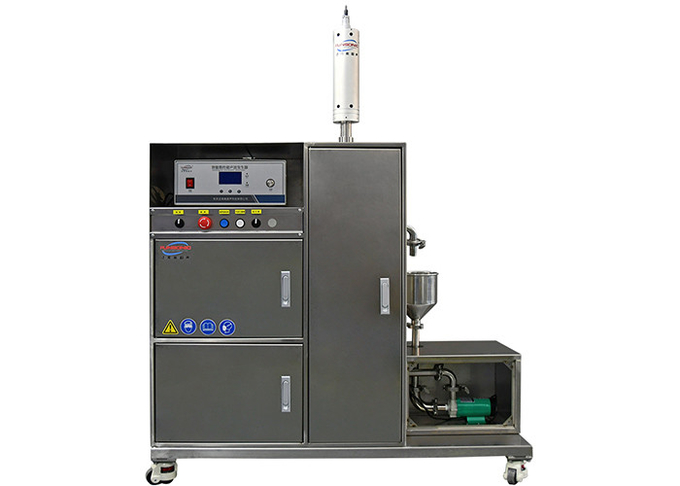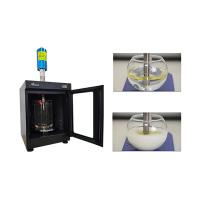High Power 3000W 20Khz Ultrasonic Liquid Dispersion
Description:
20Khz 3000w ultrasonic dispersion refers to the process of
dispersing and disassembling particles in liquid through
cavitation, using liquid as the medium. Ultrasonic dispersion can
be divided into lotion dispersion (liquid-liquid dispersion) and
suspension dispersion (solid-liquid dispersion), which have been
applied in many fields. The application of ultrasonic dispersion in
suspension can disperse water or solvents in the paint industry,
disperse dyes in molten paraffin, disperse drug particles in the
pharmaceutical industry, and disperse in the food industry, among
others.
Ultrasonic sonochemistry can be applied to almost all chemical
reactions, such as extraction and separation, synthesis and
degradation, biodiesel production, microbial treatment, degradation
of toxic organic pollutants, biodegradation treatment, biological
cell crushing, dispersion and aggregation, etc.
Parameters:
| Model | FSD-2030-PI |
| Name | 20Khz Industrial Liquid Ultrasonic Processing |
| Frequency | 20Khz |
| Power | 3000w |
| Input Voltage | 220V±10%,50/60Hz |
| Emitter Materials | Titanium Alloy |
| Diameters of Emitter Tip | Φ38mm, Φ50mm |
| Durable Temperature | 0-80℃ |
| Application | Ultrasonic extraction, dispersion, emulsification, defoaming,
crushing, stirring |
The Role of Ultrasonic Sonochemistry:
1. Mechanical action - Introducing ultrasound into a chemical
reaction system, ultrasound can cause substances to undergo intense
forced motion, generate unidirectional force to accelerate the
transfer and diffusion of substances, replace mechanical stirring,
and enable substances to peel off from the surface, thereby
renewing the interface.
2. Cavitation effect - In some cases, the generation of ultrasonic
effect is related to the cavitation mechanism. Ultrasonic
cavitation refers to a series of dynamic processes that occur under
the action of ultrasonic waves, including oscillation, expansion,
contraction, and even collapse of tiny bubbles (holes) in the
liquid. At the point of cavitation, the local state of the liquid
undergoes significant changes, resulting in extreme high
temperature and high pressure. Provided a new and very special
physical and chemical environment for chemical reactions that are
difficult or impossible to achieve under general conditions
3. Catalytic chemical reactions--
① High temperature and high pressure conditions are conducive to
the cracking of reactants into free radicals and divalent carbon,
forming more active reaction species;
② Shock waves and micro jets have desorption and cleaning effects
on solid surfaces (such as catalysts), which can remove surface
reaction products or intermediates, as well as passivation layers
on catalyst surfaces;
③ Shock waves may damage the structure of reactants;
④ Disperse reactant system;
⑤ Ultrasonic cavitation erodes the metal surface, causing
deformation of the metal lattice and the formation of internal
strain zones, thereby enhancing the chemical reactivity of the
metal;
⑥ Promoting the penetration of solvents into the interior of
solids, resulting in so-called inclusion reactions;
⑦ Improve catalyst dispersion;
High Power 3000W 20Khz Ultrasonic Liquid Dispersion














